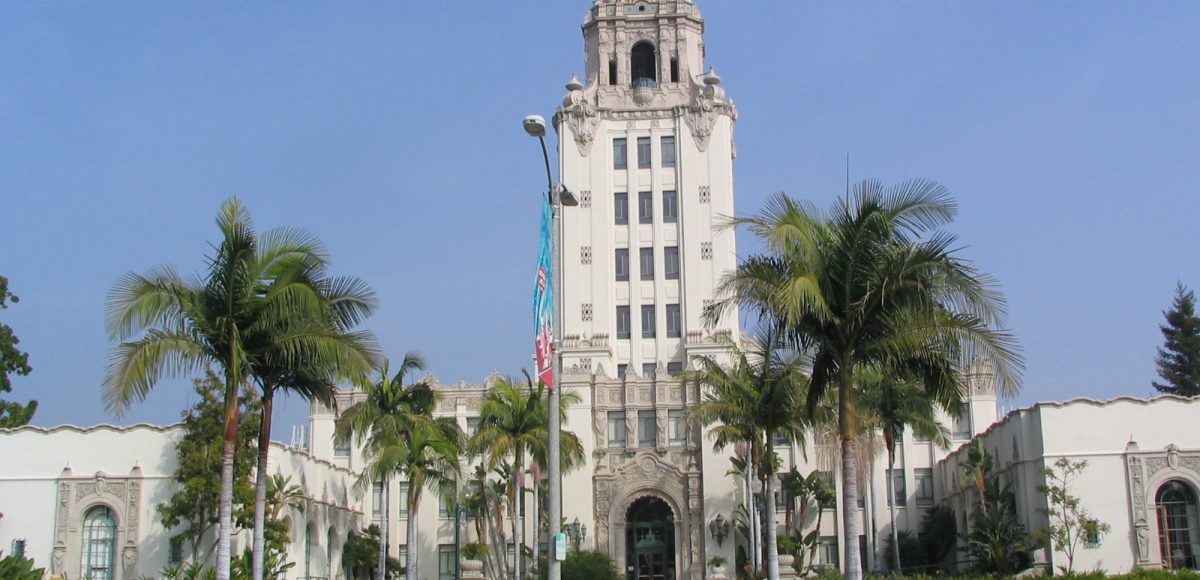With over 2,000 state legislative bills introduced annually, it’s quasi-impossible for one person to keep track of all of them, according to Beverly Hills Policy and Management Analyst Cynthia Owens. That’s where the City’s Legislative Platform comes in. The platform provides Beverly Hills’ lobbyists the ability to know how the Council thinks on a variety of issues.
“We want to make sure that our residents are being represented as well as our businesses,” Deputy City Manager Gabriella Yap told the Courier. “It’s the voice that the City has to give input on the legislation.”
In an effort to ensure that the City of Beverly Hills is effectively positioned to advocate for its best interests, on Jan. 9 the City Council crystalized Beverly Hills’ 2020 Legislative Platform, asking Owens to include additional key initiatives into the executive summary, including minimizing food waste and issues with mental health and sustainability. The updated platform is expected to return to the City Council for formal approval on Jan. 28.
The platform, which outlines policies to enable staff and lobbyists to effectively respond to and influence legislation by taking a stand for or against a bill, is intended to provide clear direction for the City’s legislative advocates and City staff to secure initiatives locally, as well as in Sacramento and Washington, D.C.
According to Owens, as long as a bill falls within the parameters of what the City has already taken a stance on, City staff can craft a letter of support or opposition. In the absence of adopting a legislative platform, she said that every single bill would have to go to City Council in order for the City to take a formal position.
“It allows us to respond very quickly when things are moving in Sacramento and at a very swift pace,” Owens told the Courier. “I can’t tell you how many times our lobbyists tell us how helpful these letters are.”
The primary legislative focus includes protecting local government control, maintaining local government revenue, pursuing homeland security funding, obtaining funding for environmental sustainability, transportation, recreational, technology and infrastructure improvements.
Proposed additions for 2020 include opposing state legislation and guidelines issued by the Bureau of Cannabis Control over the sale and distribution of cannabis and supporting the Reducing Crime and Keeping California Safe Act.
While recreational cannabis is legal statewide thanks to Proposition 64, with marijuana dispensaries scattered throughout Los Angeles, the Beverly Hills City Council wants to keep it out of the City. State law does allow residents to grow up to six marijuana plants in their homes in compliance with state law. The City has enacted strict regulations to maintain its local control, prohibiting everything within its power with the exception of the delivery of medical cannabis. Earlier this year, the City sued the state to prohibit the delivery of recreational marijuana into Beverly Hills.
The upcoming crime reduction initiative, slated for the November ballot, would expand the list of violent crimes for which early release is not an option. The initiative, which Beverly Hills fully supports, is in response to Proposition 47, Proposition 57 and Assembly Bill 109, which made some prisoners eligible for early parole by reclassifying certain offenses as non-violent crimes. Owens characterized some of those reclassified crimes as “literally jaw-dropping.” Currently, the State of California no longer considers raping someone who has been drugged or human trafficking of a child to be serious crimes.
“We’ve been told our City punches above its weight class in Sacramento,” Owens said in reference to City’s population of fewer than 35,000 residents. “[The legislators] want to know how we stand on the issues because we speak for the residents who are ultimately their constituents.”







